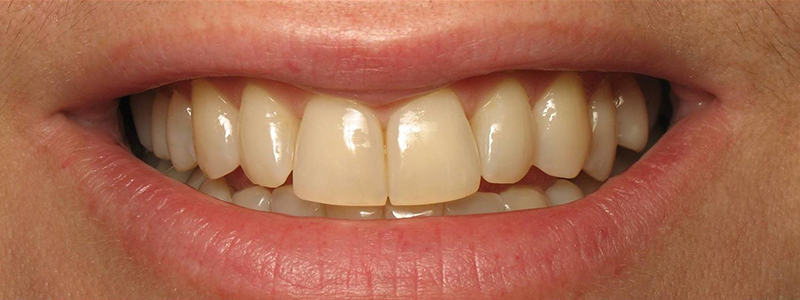DENTAL CROWNS

Dental crowns are tooth-structured covers put on top of the decayed tooth to reestablish the shape, size, and function of the tooth.
Dental crowns are made from different materials like metals, porcelain, sap and ceramics. They commonly don’t need extraordinary consideration as long as oral cleanliness is kept up with consistency.
Crowns help secure the decayed tooth and help restore function and aesthetics. Dental Crowns are expected to:
- Prevent a tooth from breaking because of mishap or injury
- Replace a tooth which is excessively enormous for a filling
- Get a cap over Implant
- Strengthen the tooth on which RCT was performed
- Cover the stained, distorted or seriously shaped tooth
Likewise, Dental Crown gives your tooth the strength, shape, size and assist with working on the function of your tooth.
WHAT ARE VARIOUS TYPES OF DENTAL CROWNS?
Dental Crowns come in different materials and can be opted by you depending on the positioning and circumstances of the tooth.
Metal Crowns
Metal crowns are strong and durable and can last for a very long time if taken good care of. The crowns in these are the most utilized and bond well with the tooth. These can endure hard biting powers and gnawing. . The biggest disadvantage is that they are noticeable from a distance subsequently, appropriate just for molars.
Porcelain-Fused-To-Metal Crown
Metal crowns cannot be used everywhere due to aesthetic reasons. Porcelain fused to metal crowns work aesthetically covering the metal portion of the cap. The inner structure is of metal and the external part of the crown is made of porcelain, subsequently, it enjoys the double benefit – metal which furnishes strength and porcelain which coordinates with the shade of the teeth making it look like regular teeth.
Zirconia Crown
Zirconia is a white strong ceramic material which has a natural tooth-like finish as well as strong enough to endure biting forces. It is the most advanced material and can seem and feel like a natural tooth.
Why choose a Zirconia Crown ?
- They have a tooth like natural finish
- They’re durable and strong
- They can be made and placed in a single visit for your teeth
- Zirconia can be layered with porcelain for a considerably more tooth-like appearance.
- Zirconia is biocompatible – it won’t create any allergic responses in your body
1. How Long Does A Dental Crown Last?
Depending upon the severity of damage to tooth, material, and consistence to oral cleanliness schedules, dental crowns might endure anyplace between 5 to 15 years.
2. Do Dental Crowns Hurt?
No.There can be slight discomfort and uneasiness in the gums and surrounding area for a few days on placing a cap which should subside on its own after a few days.
3. Does One Need A Dental Crown After RCT?
No, it depends on the severity of damage to the tooth and load on the tooth.
Post root canal, the pulp inside the tooth is cleared out on account of the infection caused inside the root.To provide durability and endurance to the tooth and adjacent structures,a dental crown post RCT is advisable
4. Do Dental Crowns Look Natural?
There is a misconception that dental crowns cannot look natural. Recent changes in innovation crowns come in different materials which looks precisely like your normal teeth. And surprisingly metal crowns are a decent and reasonable choice since they are utilized as molars and are rarely seen.
5. Do Crowns Last Forever?
Good quality dental crowns do last a very long time when oral hygiene is taken care of To guarantee their durability visit your dental specialist at regular intervals. Our dental specialist will screen your crown and advice on any changes or modifications needed.
6. Do Food And Beverage Stain the dental crowns?
Your dental crowns are made of porcelain and ceramic which don’t stain without any problem.
Dental Crowns are Just Used For Restorative Dentistry?
Cosmetic dentistry provides ways to enhance your smile to make it whiter, more aligned and beautiful. Book an appointment with us to get a detailed consultation if you are a candidate for cosmetic designing.
7. Dental Crowns Do Not Break Or Chip
Dental crowns are strong enough to endure biting forces but any sudden wrong movement, trauma or accidents can chip or break dental crowns and should be avoided to prevent damage.
8. You Cannot Get Cavity With Crowns?
Though the tooth is protected by a crown, bad hygiene practices can cause bacteria to seem and cause reinfections at times.Therefore,it is mandatory to maintain good oral hygiene.
DO’S
- It is critical to keep up with great oral cleanliness by means of brushing, rinsing and flossing to take good care of your crowns and the teeth underneath.
- If you suffer from bruxism or clenching teeth at night,consult us for a mouth guard to protect your crowns.
- Get crowns exclusively by a dental specialist to increase the life span of crowns.
- Do visit your dental specialist like clockwork to guarantee that your oral wellbeing is in the best consideration.
DON’TS
- Try not to open bottles or insert pins in your teeth as this will put pressure and will harm the crown.
- Try not to chew your nails and bite pencils.
- Try not to bite ice or candy which is hard.
- Avoid sticky food that can stick to your crowns.
The charges for crown depend on the type of crown you opt for and the one that is best for you.
- Metal crown : NPR 12000
- P. F. M crown : NPR 13500
- Ceramage crown : NPR 13500
- Single visit E-max crown : NPR 30000
- Single visit Zirconia crown : NPR 35000
- Regular E-max crown : NPR 25000
- Empress crown : NPR 28000
- Basic zirconia crown : NPR 25000
- Classic zirconia crown : NPR 30000
- Premium zirconia crown : 35000
- Temporary crown : Ranges from NPR 2500 to NPR 5500

BOOK AN APPOINTMENT






